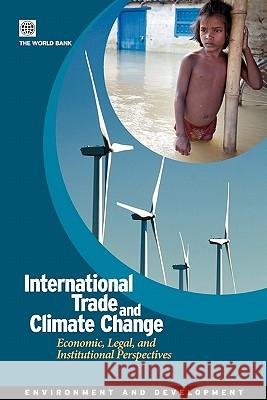International Trade and Climate Change: Economic, Legal, and Institutional Perspectives » książka
International Trade and Climate Change: Economic, Legal, and Institutional Perspectives
ISBN-13: 9780821372258 / Angielski / Miękka / 2007 / 144 str.
Climate change remains a global challenge requiring international collaborative action. Another area where countries have successfully committed to a long-term multilateral resolution is the liberalization of international trade. Integration into the world economy has proven a powerful means for countries to promote economic growth, development, and poverty reduction. The broad objectives of the betterment of current and future human welfare are shared by both global trade and climate regimes. Yet both climate and trade agendas have evolved largely independently through the years, despite their mutually supporting objectives. Since global emission goals and global trade objectives are shared policy objectives of most countries, and nearly all of the World Bank's clients, it makes sense to consider the two sets of objectives together. This book is one of the first comprehensive attempts to look at the synergies between climate change and trade objectives from economic, legal, and institutional perspectives. It addresses an important policy question - how changes in trade policies and international cooperation on trade policies can help address global environmental spillovers, especially GHG emissions, and what the (potential) effects of (national) environmental policies that are aimed at global environmental problems might be for trade and investment. It explores opportunities for aligning development and energy policies in such a way that they could stimulate production, trade, and investment in cleaner technology options.











